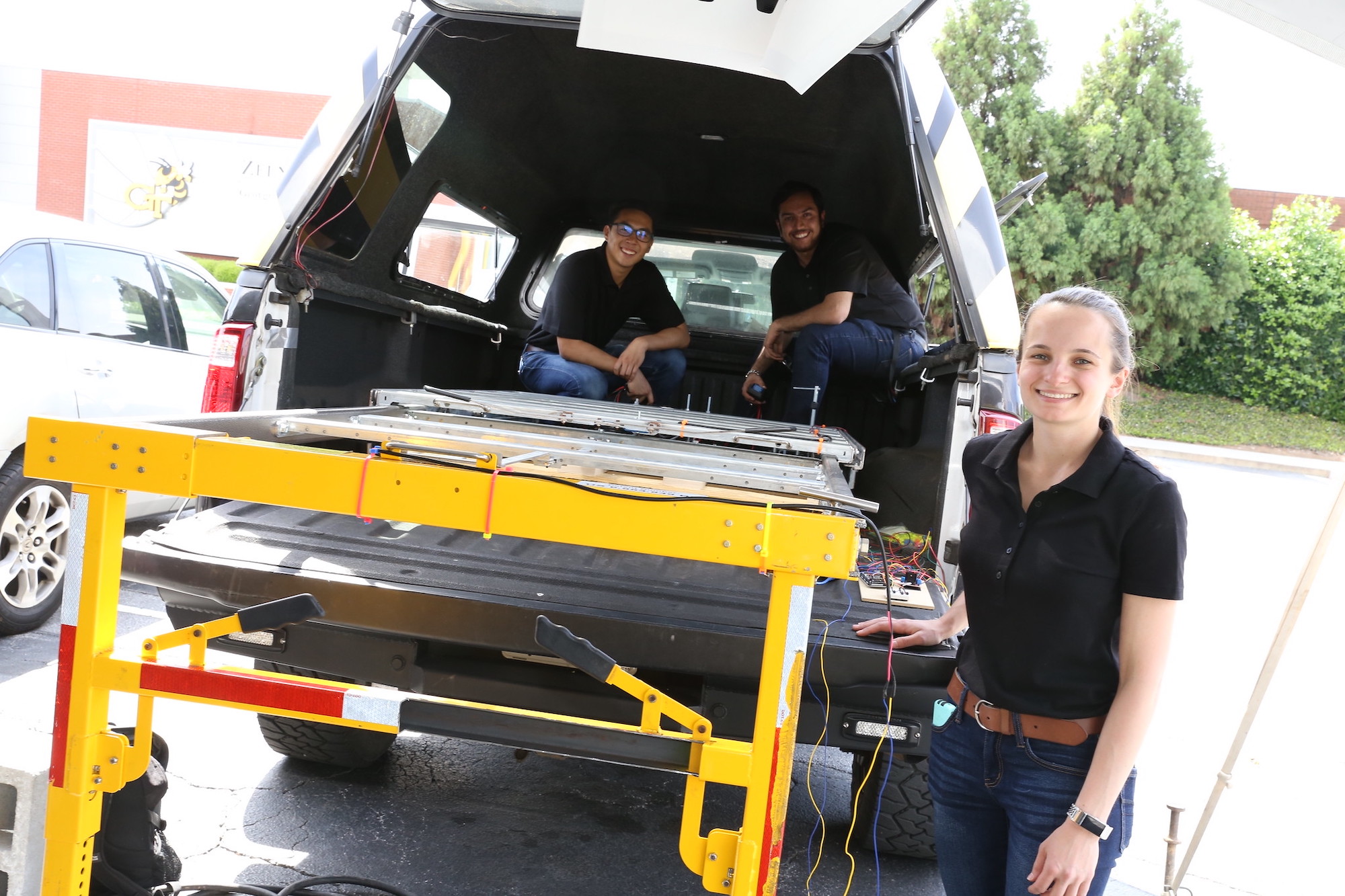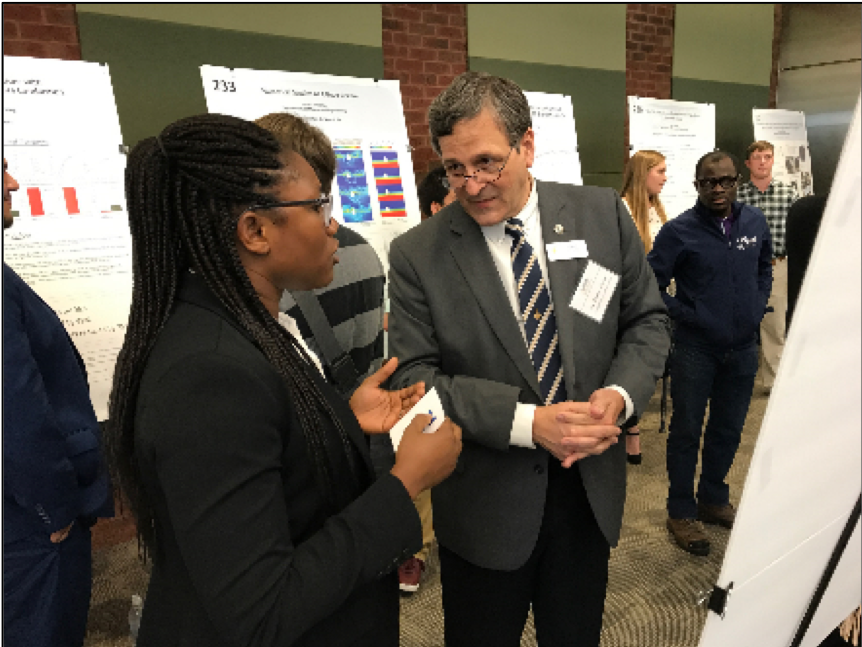Innovation where we live: The Importance of Universities in Local Innovation Ecosystems
By R. Steven Justice
Executive Director, Georgia Centers of Innovation
Georgia’s public and private universities and colleges are a prime resource in building a strong innovation ecosystem throughout our state. Over the last month I’ve had the pleasure to visit three of our great academic institutions in Georgia; Berry College, Georgia Tech, and Georgia Southern University, to see firsthand the program that are feeding our 21st century innovation workforce.
“When in Rome…”
Berry College located near Rome has a well-established program in ‘student work’ overseen by Dean Rufus Massy and his staff. The program offers a way for students to offset some of the cost of their education expenses with many jobs that would normally be done by staff at other institutions. The core of the program is 16 student run enterprises that provide hands-on work experience with opportunities for leadership development, two of which are Viking Furniture and Season’s Harvest.

Viking Furniture has a small team of about 7 students who build very nice Adirondack chairs, ottomans, and tables – many built to order. These are high quality products that hone the building skills of the students while learning to balance academics with work. General Manager Davis Clark related that at first, he was very focused on improving the finances of the enterprise, but learned quickly about the responsibility of a business leader to take care of the workforce. Now he has a more balanced approach that is improving the overall finances of the business, while addressing the main academic mission of the college.
Season’s Harvests has gardens and greenhouses that provide plants and vegetables to the college, faculty and staff, students and the general public. General Manager Isabell Hill is a freshman from Ringgold majoring in Environmental Science and loves playing in the dirt; she simply loves working at Season’s Harvest and shares that same passion with the other workers there.
The Berry College Campbell School of Business has a strong Entrepreneurship Program led by Professor Paula Englis. The program just held their Pitch Competition in February where they awarded $27,000 in cash prizes to the best student business presentations. The final round was also streamed online so that alumni, parents and friends of Berry could watch and vote for their favorite pitches. In April they held a poster session for student capstone projects in entrepreneurship.
Also, the School of Business is home to the Creative Technologies degree program supported by HackBerry Labs, a makerspace run by Zane Cochran. The facility has equipment to support prototyping including 3D printers, a laser cutter, printed circuit board printer, and an electronic parts placement robot. In the first two years of the program the emphasis is developing solution to problems the students themselves bring forward, while in the last two years the focus shifts to assigned projects that mimic the product development cycle in industry. HackBerry is also open in the evenings to all students to allow them to experiment and create across all academic areas in the college.
The programs at Berry are impressive and develop strong work based skills in the students that benefit companies throughout the state. The programs also present an excellent opportunity to spin-off new ideas to become businesses in the Rome area.
“We Can Do That”
Georgia Tech is an innovation dynamo that is powering an innovation revolution within Georgia; especially evident in midtown Atlanta. This spring alone I’ve participated in several programs at Tech that build our innovation workforce pipeline the InVenture Prize and the K-12 InVenture Prize. The latest event was the annual spring Capstone Design Expo that featured more than 1200 students in 236 teams showing off their skills in solving real-world engineering problems.
Projects from 11 different schools and program covered the gamut of industries in our state from aerospace to medical devices, construction, drones and robots – you name it, it was there! Students worked on projects for local Fortune 500 companies including The Home Depot, Delta, UPS, and Coca-Cola, as well as MARTA, Emory, the CDC, and Atlanta Hawks. But not all the projects were connected to large companies; some addressed needs of smaller local companies.

One such project was ‘Team Autobed’ who the Center of Innovation for Manufacturing connected with Metcam, Inc. to work on a project to improve the design and manufacturability of Metcam’s TramBed, which is an innovative pickup truck bed extension system. The Center also provided matching funds towards the project as part of MetCam receiving an award as ‘2018 Georgia Small Manufacturer of the Year’.
The ability for companies of all sizes to collaborate with researchers and students to help them innovate is a silver bullet for Georgia companies to help them compete in the global marketplace.
“It’s a Southern Thing”
The Georgia Southern University College of Engineering & Computing ‘Student Research Symposium’ showcased 150 student projects in 18 different interdisciplinary areas. Many of the projects addressed problems taken from industry partners and supported by industry mentors. Judges from well-known companies such as Gulfstream Aerospace, Georgia Power, New South Construction, Lockheed-Martin, and Daniel Defense asked probing questions of the student teams to narrow the field to six finalists who then competed in the “Top Eagle” pitch session to determine the eventual winners.

What was particularly impressive was the potential for real-world applications of the research; either to the sponsoring companies or as new start-up companies to commercialize the technology. So while the research programs help to build the skills of the students which as future employees benefit our industries, the technologies themselves can also fuel a new wave of innovation and local economic development.
No Ivory Towers
Gone are the days of the university as an ivory tower separated from the community; the ability to link the programs at local universities to the innovation ecosystem of the community is key to expanding the economy of the region. This requires both academic and community leaders fostering the three main aspects for collaboration: evolving the educational programs to produce graduates with the skills needed by industry today and tomorrow; collaborative research between universities and companies of all sizes (not just the big ones) to grow our existing industry; and providing support from the university and local community to help ideas birthed in the universities to grow into new local entrepreneurial companies which will add another dynamic layer to the economic fabric of the community. Communities and local universities that travel down that path will build a strong innovation ecosystem leading to new economic growth and prosperity.
